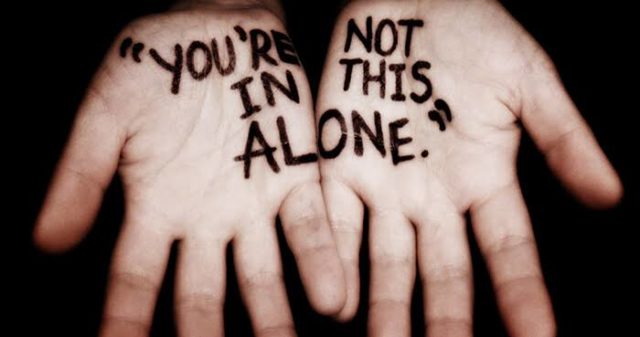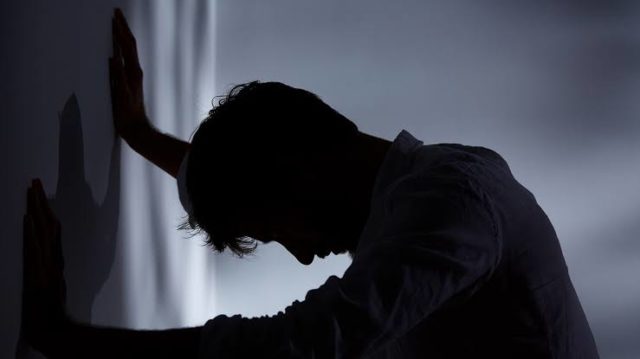There was a time when I saw my father feel ashamed of speaking about his mental health. There was thorough secrecy maintained about his regular visits to psychiatrist and taking prescription medicines.
As a daughter, I often found people overly sympathetic towards me, that too well-knitted with furtiveness as my father was unwell. I do not remember anyone ever speaking about his condition directly to me.
I wish I could have asked them what was there to hide about troubled mental health when we are so loud, even about a basic fever or cough?
Things are gradually changing though! The millennials and post-millennials are suffering from depression and anxiety more than any other generation and we have got no other choice left but to cure it as soon as possible. Although we make dark memes about depression and anxiety, it is not about just a mere social stunt every time.
People posting happy pictures on social media and ending their lives the next day is real.
As I tend to deal with depression and excessive anxiety and advocate mental health, I would like to talk about the methods this generation can implement to deal with depression.
Talk!
Try to talk about your feelings. Try to talk about the pain you are going through. I know, it is difficult to explain the feelings every time. Sometimes patients themselves cannot figure out why the sudden anxiety is choking them off. But try your best to express yourself.
If you cannot express verbally, write down what is in your mind. It may not cure you like medicine, but it will give you a path to soothe yourself.

Pay a visit to a counselor (not the judgemental one!)
We millennials are always under pressure. There is a pressure to be the best performer at the office, the pressure to love and be loved, the pressure to achieve more and what not! Sometimes, we do not know how to channel our energy and end up feeling anxious.
Our lifestyle, habits, perspective towards life, etc are not always healthy. So it is important to pay visits to a compassionate counselor who can help you in channeling your energy without judging you for your habits and lifestyle.
Also Read: As Someone Who Grew Up With A Mentally-Ill Person, Here’s Why I Think Mental Health Is Important
Get out of your apartment
Depression makes us feel low and unwanted. Due to our increasing insecurity, we tend to avoid communication. Taking work-from-homes, looking at Netflix screen blankly and calling it ‘chill’ on social media, feeling ugly and hiding such feelings is all we do when depression overpowers us.
To overcome such a situation, it is important to get out of your comfort zone. Getting out of the house and facing the world can make you feel better. So despite what depression tells you, get yourself to a coffee shop, library or a park. Help yourself!
Ramp up the self-care
Make time for self-care. Once a friend told me, “The only person who can save you is YOU” and now I believe this completely.
There are two ways of self-care: the first one is to invest time in something very creative. It can be tasks like painting, writing a journal, jewellery designing, etc. which need thorough concentration and practice.
The second type of self-care is all about pampering yourself: for example, go out on a movie date with yourself, try a new cuisine, plan a solo trip… the options are endless.

Be a mental health advocate
Medicines heal fast but being compassionate about yourself and others can heal you faster. It is important to keep in mind that our generation suffers a lot. We all are fighting different battles but are afraid to speak about it. So, try spreading compassion.
Talk about mental health.
Share your healing methods with others.
Be someone’s guide in the darkness. This can help you to heal and empower others along with yourself.
Do you want to talk about mental health? Share your experience in the comment box.
Image sources: Google
Find the blogger: @UrmiKhasnobish
Also Recommended:
Back in Time: 57 Years Ago Marilyn Monroe Found Dead, Hinting At Suicide






































Depression may be on the rise among younger millennials even as typical risk factors such as substance use and antisocial behavior fall, a new study in the International Journal of Epidemiology suggests.
Researchers looked at two groups of millennials in the United Kingdom, one born between 1991 and 1992 and a second born between 2000 and 2002.
The researchers said they found that overall symptoms of both depression and self-harm had increased by age 14 in the younger cohort compared to the older one.
Even as a kid, I vividly remember struggling to cope with stressful situations, feeling paranoid about very specific things, and having an obsession with doing everything “right,” so as to please people around me and avoid conflict of any kind. This was, in part, or maybe in whole, due to certain events which made me brace against difficult situations.
That was my goal in a study just published in the journal Social Indicators Research. It looked across three samples totaling to 7 million people, two of them nationally representative. I found that teens in the 2010s (compared to the mid-1980s) were 38 percent more likely to have trouble remembering, 74 percent more likely to have trouble sleeping and twice as likely to have seen a professional for mental health issues. College students were 50 percent more likely to say they feel overwhelmed, and adults were more likely to say their sleep was restless, they had poor appetite and everything was an effort — all classic psychosomatic symptoms of depression.
Firstly, we should not oversee the fact that just recently it became socially acceptable to speak about such things as depression and anxiety. People drew attention to the topic, hoping that would help everyone struggling with mental illness, but we all know that not everything can be trusted – some things in the movies and the books are changed so the story sounds better and some of the information in the internet is inaccurate. And although nowadays is appropriate to talk about depression, often the actual problem is not that the person is mentally ill – they could be just going through a difficult period.
Depression may be on the rise among younger millennials even as typical risk factors such as substance use and antisocial behavior fall, a new study in the International Journal of Epidemiology suggests.
Researchers looked at two groups of millennials in the United Kingdom, one born between 1991 and 1992 and a second born between 2000 and 2002.
The researchers said they found that overall symptoms of both depression and self-harm had increased by age 14 in the younger cohort compared to the older one.
Symptoms of depression increased from 9 percent to almost 15 percent between 2005 and 2015 — the years of each group’s respective check-in — while reported self-harm increased from almost 12 percent to more than 14 percent.
We’re the first generation that cannot escape our problems at all,” says Faith-Ann. “We’re all like little volcanoes. We’re getting this constant pressure, from our phones, from our relationships, from the way things are today.
There are probably other reasons. I doubt technology is the major one, as tempting as it seems – these increases were in place long before cell phones and Facebook. Ditto for the recession. Instead, something else in our culture seems to be making people unhappy.